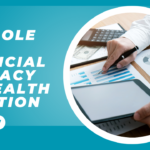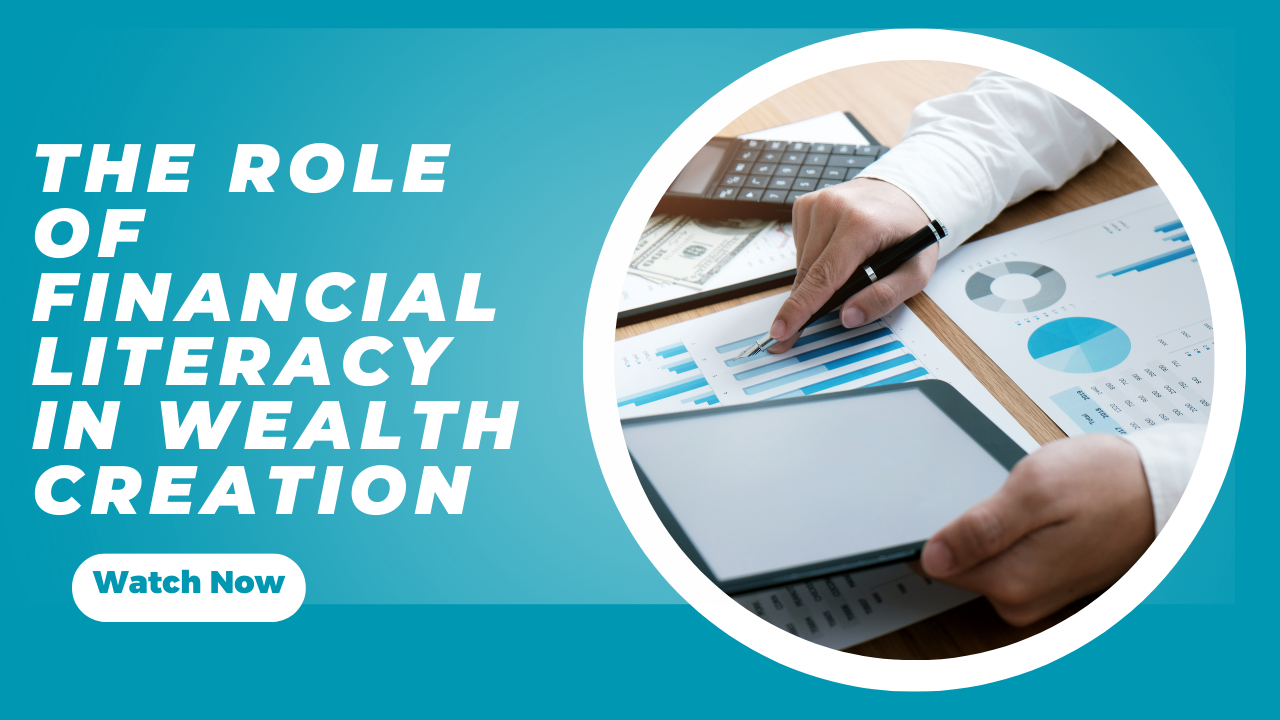Financial literacy is more than just understanding how to save money; it’s about knowing how to manage, invest, and grow your finances effectively. In today’s world, financial literacy is essential for anyone who aims to achieve financial stability and independence. This blog post will delve into the various aspects of financial literacy and how it plays a crucial role in wealth creation.
Table of Contents
What is Financial Literacy and Why Does It Matter?
Basic Components of Financial Literacy
Financial literacy encompasses several key components:
- Budgeting: Creating and following a budget is the foundation of financial literacy. It involves tracking income and expenses, ensuring that you live within your means.
- Saving: Developing a habit of saving is critical for financial security. This includes setting aside money for emergencies and future goals.
- Investing: Understanding different investment options and strategies is essential for growing wealth. This includes knowledge about stocks, bonds, real estate, and other investment vehicles.
- Understanding Debt and Credit: Knowing how to manage debt and use credit responsibly is crucial. This includes differentiating between good and bad debt and maintaining a healthy credit score.
The Importance of Financial Education
Financial education provides the knowledge and skills needed to make informed financial decisions. It has numerous benefits, including:
- Personal Benefits: Enhanced financial literacy leads to better financial decisions, reduced stress, and improved overall well-being.
- Societal Benefits: A financially literate population can contribute to a more stable and prosperous economy.
How Financial Literacy Drives Wealth Creation
Effective Budgeting and Saving
Effective budgeting and saving are the cornerstones of financial stability. By creating and sticking to a budget, individuals can ensure they live within their means and allocate funds toward savings. Building an emergency fund is a crucial step in this process, providing a financial safety net for unexpected expenses.
Strategic Investing
Investing is a powerful tool for wealth creation. Financial literacy helps individuals understand various investment options, such as stocks, bonds, and real estate. Knowing the basics of risk and return, as well as diversifying investments can significantly enhance the potential for financial growth.
- Stocks: Investing in stocks offers the potential for high returns, though it comes with higher risk. Understanding market trends and company performance is essential.
- Bonds: Bonds are generally safer investments compared to stocks, providing steady returns with lower risk.
- Real Estate: Real estate can be a lucrative investment, offering both income and appreciation. Knowledge about market conditions and property management is vital.
Managing Debt Wisely
Debt management is a critical aspect of financial literacy. Differentiating between good debt (such as a mortgage) and bad debt like high-interest credit cards is essential. Implementing strategies for debt repayment, such as the snowball or avalanche methods, can help individuals reduce their debt burden and improve their financial health.
Steps to Enhance Your Financial Literacy Today
Educational Resources
Improving financial education starts with education. Numerous resources are available to help individuals enhance their financial knowledge:
- Books: Many books offer comprehensive insights into personal finance. Popular titles include “Rich Dad Poor Dad” by Robert Kiyosaki and “The Total Money Makeover” by Dave Ramsey.
- Online Courses and Seminars: Websites like Coursera and Udemy offer courses on personal finance and investing.
- Reputable Websites and Blogs: Websites such as Investopedia and NerdWallet provide valuable information on a wide range of financial topics.
Financial Tools and Apps
Use financial tools and apps can make managing finances easier and more efficient:
- Budgeting Tools: Apps like Mint and YNAB (You Need A Budget) help track income and expenses, ensuring that you stay within your budget.
- Investment Platforms: Platforms like Robinhood and Acorns allow individuals to start investing with minimal capital and provide educational resources to help them learn about investing.
Professional Advice
Seeking professional advice can be beneficial, especially for complex financial situations:
- Financial Advisors and Planners: These professionals can provide personalized advice and help create a comprehensive financial plan.
- Community Workshops and Financial Counseling: Local community organizations often offer workshops and counseling services to help individuals improve their financial literacy.
Tackling Barriers to Financial Literacy
Addressing Myths and Misconceptions
Many myths and misconceptions about money and investing can hinder financial knowledge. For instance, the belief that investing is only for the wealthy can prevent people from exploring investment opportunities. Avoiding these myths and promoting accurate information is crucial for improving financial knowledge.
Cultural and Socioeconomic Barriers
Cultural and socioeconomic factors can also pose challenges to financial education. For example, individuals from low-income backgrounds may have limited access to financial education resources. Addressing these barriers through targeted programs and initiatives can help bridge the gap and promote financial literacy across different communities.
Access to Resources
Ensuring access to affordable or free financial education resources is essential for enhancing financial literacy. Public libraries, community centers, and online platforms can provide valuable resources and support for individuals seeking to improve their financial knowledge.
Conclusion
Financial literacy is a vital component of wealth creation and financial stability. By understanding the basics of budgeting, saving, investing, and debt management, individuals can make informed financial decisions that contribute to their long-term financial success. Enhancing financial literacy through education, tools, and professional advice can empower individuals to achieve their financial goals and improve their overall well-being.
Taking the first step towards improving financial literacy today can pave the way for a more secure and prosperous future. Explore the wealth of resources available, seek professional guidance when needed, and commit to continuous learning and improvement in your financial journey.
For further reading and useful tools, consider visiting reputable financial websites and exploring educational courses on personal finance and investing. Start your journey towards financial literacy and wealth creation today, and unlock the potential for a brighter financial future.










